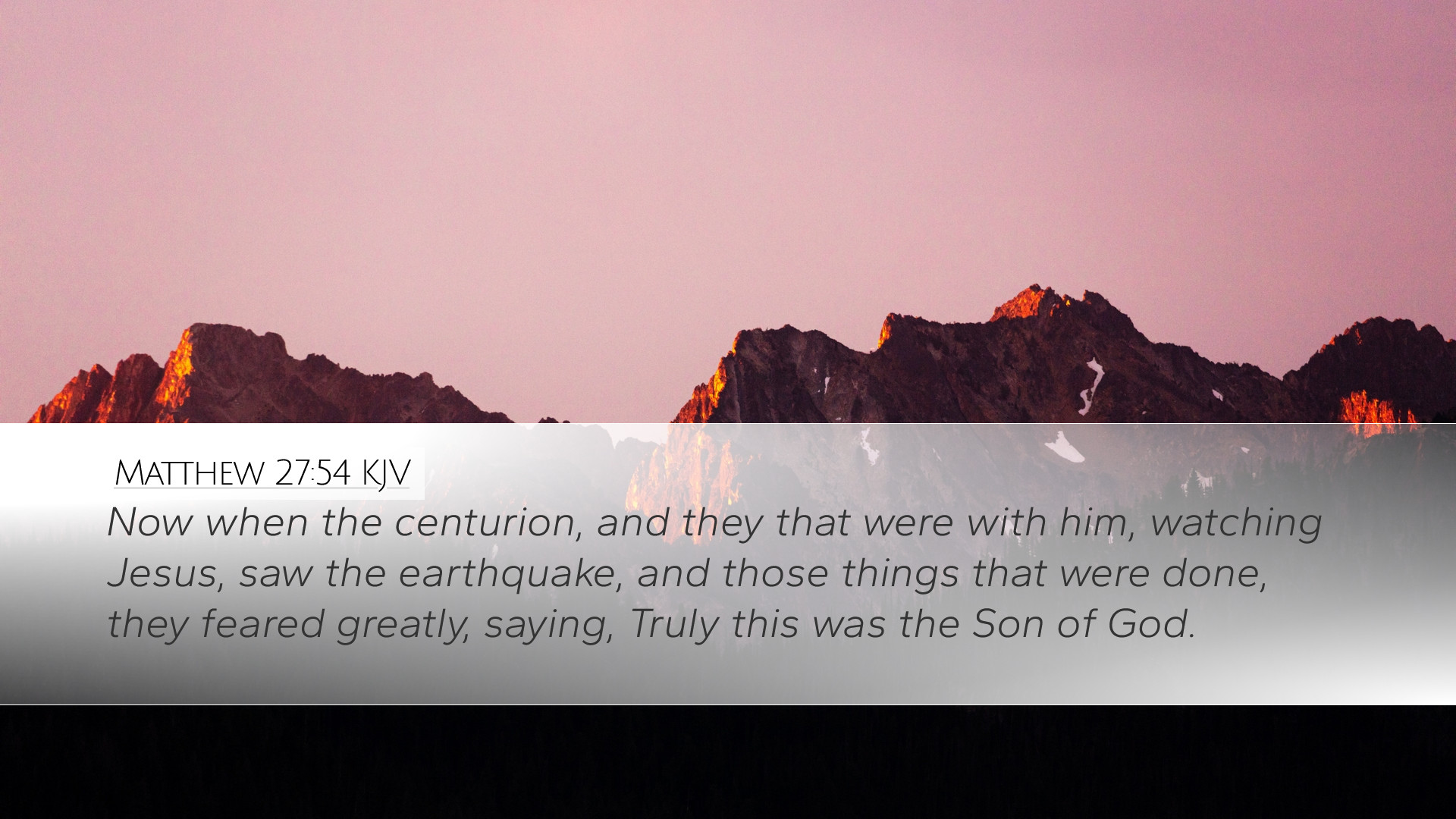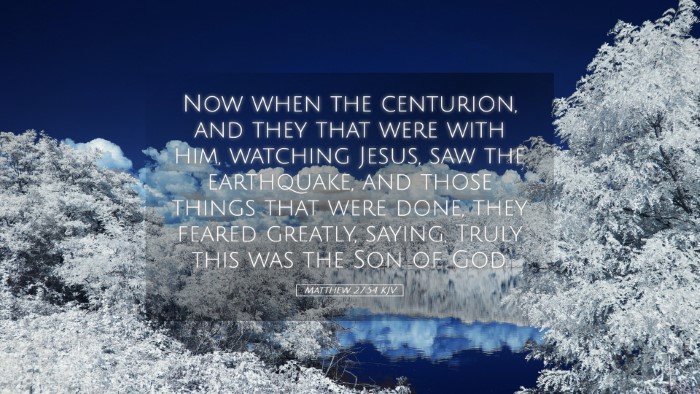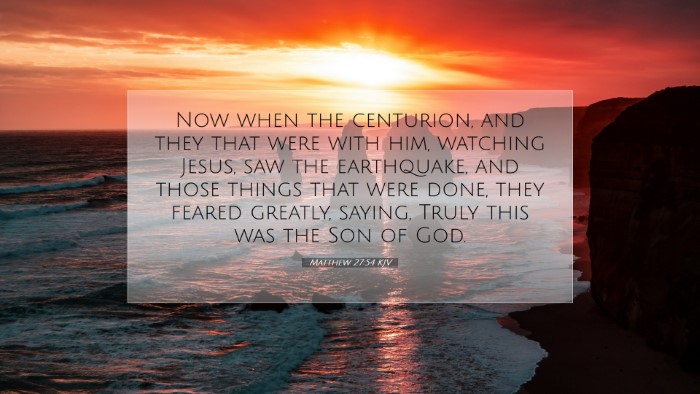Commentary on Matthew 27:54
Verse Reference: Matthew 27:54 - "Now when the centurion, and they that were with him, watching Jesus, saw the earthquake, and those things that were done, they feared greatly, saying, Truly this was the Son of God."
Introduction
This verse captures a pivotal moment during the crucifixion of Christ, highlighting the profound impact of the events surrounding His death. The response of the centurion and his soldiers serves as a critical affirmation of Jesus’ divine identity, raising questions about belief, witness, and the transformative power of divine revelation.
Contextual Overview
This passage occurs during the dramatic events surrounding the crucifixion of Jesus. It is essential to grasp the emotional and theological weight carried within these moments, as they reveal not only the nature of the crucifixion but also the reactions of those who witnessed Christ's death.
Insights from Public Domain Commentaries
Matthew Henry
Matthew Henry elucidates that it is significant that the revelation of Christ's divine nature came from a centurion, a Roman soldier who played a role in the execution. He highlights that this man, influenced by the supernatural events (such as the earthquake and darkness), proclaimed Jesus as the Son of God. This transformation demonstrates the reach of Christ’s message beyond the Jewish audience, foreshadowing the global mission of the Gospel.
- The Impact of the Earthquake: Henry notes that the earthquake served as a divine response to the crucifixion—a sign that even nature responded to the death of Christ.
- Conversion Moment: The centurion’s declaration reflects a sudden realization born from his observations, underscoring the theme of revelation through observation.
Albert Barnes
Albert Barnes provides a detailed analysis of the centurion's statement and its theological implications. He emphasizes the importance of the phrase "Truly this was the Son of God," indicating that this confession represents one of the first clear acknowledgments of Jesus' divine sonship after His death.
- Authority Acknowledged: Barnes points out that the centurion, accustomed to power and authority, recognized an authority far greater than his own when faced with the events surrounding Christ’s death.
- Symbol of Faith: The centurion's statement symbolizes a moment of faith arising from the extraordinary—signifying that belief often stems from divine intervention rather than human persuasion.
Adam Clarke
Adam Clarke delves into the cultural and historical significance of this moment. He suggests that the response of the centurion, a Gentile, serves to emphasize the universal nature of Christ's mission. Clarke notes that this acknowledgment may have resonated strongly within the early Christian community, as it foreshadowed the inclusion of the Gentiles into the promise of salvation.
- Contrasting Reactions: Clarke highlights the contrast between the indifference of some Jewish leaders and the profound faith evident in the centurion’s words.
- Role of the Centurion: Clarke reflects on the role of centurions in the Roman army, noting their responsibility in executing orders and managing men, making the centurion’s recognition of Jesus’ divinity all the more striking.
Theological Significance
The declaration of the centurion plays a crucial role in the theology of Matthew’s Gospel. It marks a turning point that indicates the breaking of barriers between Jew and Gentile, emphasizing that the grace of God transcends cultural and societal boundaries.
Revelation and Response
This verse illustrates a crucial theme in the New Testament: that genuine revelation leads to an authentic response. The centurion’s acknowledgment of Jesus as the Son of God reflects a transformative moment that illustrates how divine encounters prompt a recognition of Jesus’ true identity.
Applications for Today
For pastors and theologians, this passage serves as a reminder that faith can arise from unexpected places. It encourages the church to be open to the ways in which God reveals Himself to others, often through extraordinary means. Additionally, it challenges individuals to consider their own response to Jesus—are we acknowledging Him as the Son of God in our lives and communities?
Conclusion
Matthew 27:54 is a powerful testament to the divine nature of Jesus as recognized by a Gentile centurion. It serves as a reminder of God’s ability to reach all people, transcending cultural barriers and societal expectations. As we reflect on this confession, may we be inspired to share the truth of Jesus with all whom we encounter.


